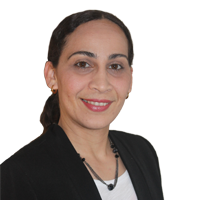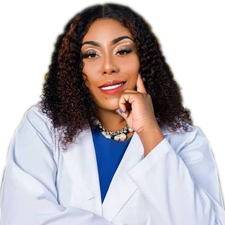When the term “hair growth” arises, usually people will suggest the use of biotin. Biotin is a water-soluble B vitamin that helps synthesize food into energy. It is also a powerful force behind healthy hair, skin, and nails. However, studies have suggested that a well-rounded diet, which will supply the body with all of the available vitamins and minerals, will adequately support hair health and growth. Biotin alone does not completely transform your hair without the help of other vitamins and minerals, which can be attained from a healthy diet.
Before diving into the different vitamins that boost beautiful hair, attention should be focused on the different stages of hair growth. There are three stages of hair growth, which include the anagen, catagen, and telogen. The anagen phase, the longest phase that can last up to five years, is the growth phase. When the hair enters the catagen phase, the hair follicle blood supply is cut off and it marks the end of the growth phase. During the telogen phase, the hair follicle releases the hair and enters two to three-month inactivity. The anagen growth phase then begins after the follicle has rested. Thankfully, each hair follicle is on its own growth cycle. Otherwise, people would be bald because all of the hair would fall out at once.
Today, we will be focusing on vitamin D, B, and E, which are the primary vitamins that support luscious hair. Let’s review them below.
1. Vitamin D
a. Many people associate vitamin D with healthy bones, but it also supports hair health. Vitamin D can create new hair follicles, which can lead to thicker, fuller hair. It has also been shown to awaken dormant follicles. When hair follicles remain dormant and do not enter back into the anagen or growth phase, balding occurs.
b. Vitamin D is obtained from sun exposure, and it is also found in food like fish, grains, and fortified cereals.
2. Vitamin B
a. There is a total of eight B vitamins, and biotin, or B7, is the one commonly associated with hair growth. However, all B vitamins aid in regulatory mechanisms in the body, like turning food into energy. B vitamins also help create new red blood cells, which, in turn, supply the scalp with appropriate blood flow to keep the hair growth cycle productive and thriving.
b. B vitamins are water-soluble, meaning that they will be excreted in your urine. They are not stored in the body so B vitamins must be replenished every day.
c. Food high in B vitamins include nuts, eggs, vegetables, whole grains, and beans, to name a few.
3. Vitamin E
a. This vitamin has been long-known for its effects on the skin and hair. Vitamin E is an antioxidant, which acts in the body by removing harmful oxidants. Particularly in vitamin E, there is an antioxidant called tocotrienols, which helps support a healthy scalp.
b. Vitamin E can be found in vegetable oil, spinach, kale, almonds, and hazelnuts.
To maximize hair potential, eat a balanced diet, which will help you achieve the ultimate supply of vitamins and minerals. To discuss continued hair loss, speak with a physician today at Cura4U.










